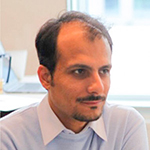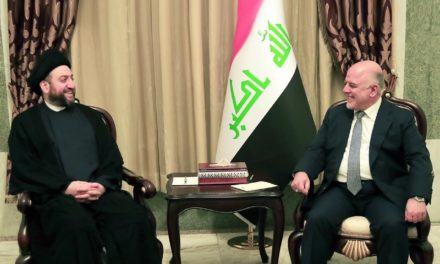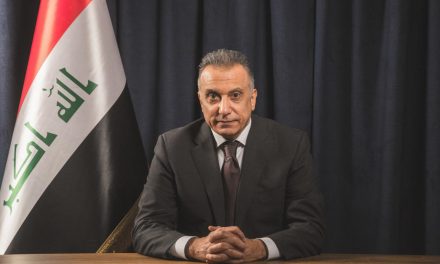The vast amount of criticism about Iraq, whether it is meant well or ill-minded, has created a rather toxic and unproductive environment in which everything is viewed in a negative light.
While constructive criticism should be one of the mechanisms through which freedom of speech can contribute to change in a society, this is not happening in Iraq despite the abundance of critical minds and criticizers. What makes the situation worse is that criticism is often used to make Iraq look bad and to prove its failure, rather than to point out the flaws in order to fix them. Problems are discussed, and the situations assessed based on flawed arguments and unrealistic standards, and the negativity and falsehood is amplified through social media.
Iraqis who should be proud of achieving many things despite the huge challenges they are facing seem not to value their own victories and sacrifices. And in the rare moments when they do feel proud about something, some people, often foreign journalists and analysts, take down the achievement in very unprofessional ways causing feelings of disappointment and confusion among their less-informed Iraqi followers on social media.
As discussed in my previous article, there are many reasons why people criticize. However, Tasha Eurich the influential author of Insight gives important advice. She says that it is often not beneficial nor even possible to figure out exactly why people act the way they do. However, it is always productive to focus on what is happening on the ground and to think about how to face the reality, in this case the fact that Iraqi cyberspace and in general the media sphere related to Iraq is so negative and full of criticism, often neglecting the successes and the challenges Iraq had to face in order to survive.
This is not a call to be delusional and unrealistic, viewing failures as successes and lying about problems. It is also not a call to cover for the corrupt, and to become staunch apologists. Rather, it is to point out that the current mentality of negativity and hopelessness is never going to produce positive change. This is what ‘Appreciative Inquiry’ is about. Appreciative Inquiry or AI is an approach, even a philosophy, that aims to follow a positive and action-oriented approach to life in order to achieve transformation. It can be applied on a personal level, has been successful in organizations and governments, and its logic is also applicable to societies.
AI is especially important when dealing with situations and societies that have witnessed incredible amounts of problems and crises. Let’s reflect a little bit what Iraq had to face in the last 14 years.
After 2003, Iraqis started their democratic process while still occupied by forces that clearly didn’t have in mind to rebuild the country. Their country was on the brink of a full-blown sectarian war that was funded with billions of dollars by its neighbors who were worried that their regimes would end up the same way Saddam’s regime did. Iraq was subject to the harshest terrorist attacks because it suddenly became the ‘frontline of combating terrorism.’
Iraqis were labeled traitors because they wrote their constitution while still being occupied, went to vote under the threat of being blown up by suicide bombers, while being subject to a vicious propaganda war by well-established news organizations when they still were building their media institutions from scratch in order to defend their young democracy.
As soon as the US occupation ended, Iraq was subject to a chain of political crises that ended up with ISIS occupying over a third of the country. The battle to liberate Iraq began, with many other internal political battles fought on the sideline. And when Iraq was about to defeat ISIS militarily, the country’s unity was challenged through the Kurdistan Referendum, threatening to scrap the New Iraq project altogether.
Iraq overcame that too, and a new phase of negotiations, transparency, and tough decision is starting now. Concurrently, Iraq is taking on the battle against corruption, which will probably be the toughest of all.
It is easy to infer that the circumstances of Iraq, even based on this quick overview, is unique and extremely difficult. Yet we see some people judge the situation based on standards that would be appropriate in Sweden or Switzerland. A perfect democracy is not built in 14 years, and certainly not when there are obstacles like occupation, civil war, and terrorism at play. It can’t be built easily when a huge part of the country wants independence, when Iraq’s neighbors fight each other on its soil, and when huge oil companies try to steer the situation in their favor.
Iraq in many areas has hit rock-bottom. So, how wise is it to count the things that have gone wrong in Iraq? How can we achieve change when we are busy counting our failures and dissecting every weakness? This is what Appreciative Inquiry is about. The basic principle of AI is that it is sometimes better to focus on the points of strength and what is working in order to counter challenges, fix problems, and more importantly build the future from scratch. Aristotle has allegedly said that “The secret of change is to focus all of your energy, not on fighting the old, but on building the new.”
In traditional problem-solving, the focus is on what the stakeholders feel needs to change. In other words, the traditional way seeks to determine what is missing. In AI stakeholders start with what is there and try to appreciate it, valuing the existing points of strength.
Traditional problem-solving focuses a lot on analyzing the causes of a specific problem. But as mentioned before, in situations like Iraq, there could be a million reasons for why things are the way they are, and many of the critical factors might not be in the hands of Iraqis, or are at least very difficult to address. AI however focuses on the future. It wants the stakeholders to envision what is awaiting them, and the possibilities and potential that they have.
Instead of analyzing the possible solutions for a specific problem, AI wants stakeholders to debate what should be, to choose the things they want to achieve, basically designing the future. As the famous management thinker Peter Drucker said “The best way to predict your future is to create it.”
Criticizing Iraq and its society should not be a hobby that people engage in on social media when they feel down or when they want to show off their intellectual capabilities. This practice is not only bringing down the overall morale at a time when high morale is required to achieve change and rebuild the country, it also indirectly feeds into the propaganda effort of Iraq’s adversaries, among them ISIS, who have ‘electronic armies’ that conduct 24/7 social media warfare and influence the thoughts of Iraqis the way that best fits their interests.
Critical thinking is always important, and Iraqis excel at it. However, it should not only be used on identifying problems, but also on thinking about the future. Decision-makers, opinion-influencers, and social media-influencers should always talk about alternatives and envision the future instead of indulging in discussions of problems without suggesting any solutions. Being critical and judgmental should not take the place of realistic hope. No nation was able to change and achieve a better future without hope.
Of course, this is for Iraqis and their friends who want the best for the country. For those who don’t believe in Iraq, or the self-proclaimed experts who don’t even bother to learn one of Iraq’s languages, not to mention live in it for a while, I don’t have good things to say about them. So, I will just say: leave us alone.
Iraq is ours, and we need to think about how to build a better future for it. Replying to the pessimists is at times necessary, but you can be sure that they will never stop moaning about everything.

Muhammad Al-Waeli
Muhammad Al-Waeli is an Iraqi commentator on political and social issues. He is currently doing a PhD in Human Resource Management and is interested in politics, media, and development.










